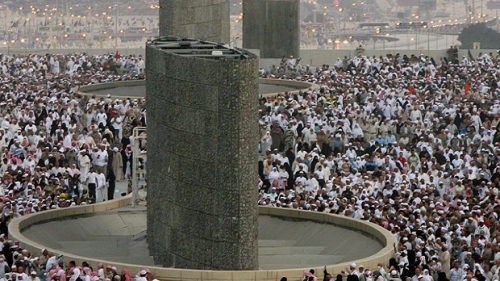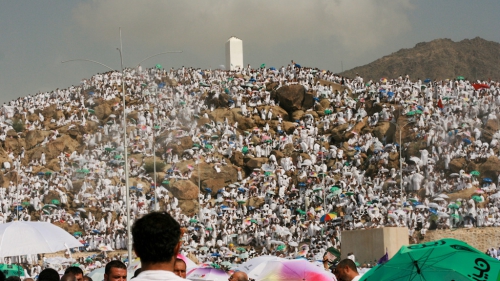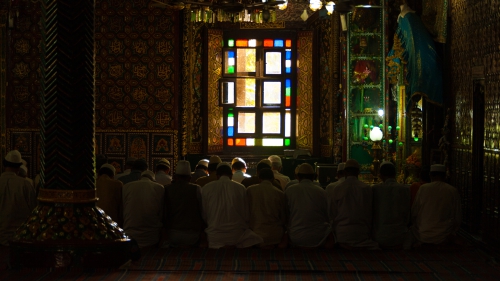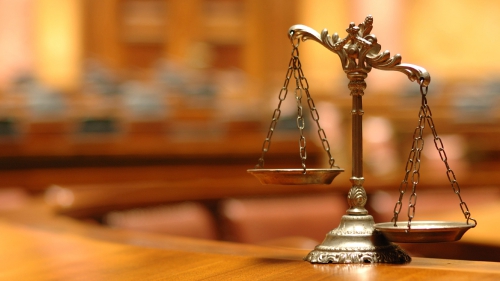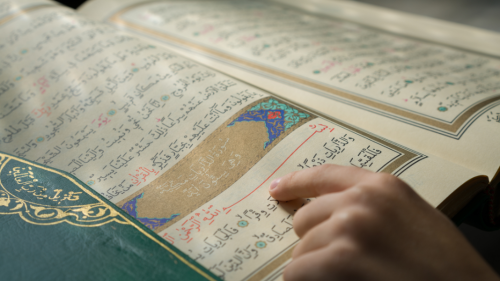Educated but Ignorant
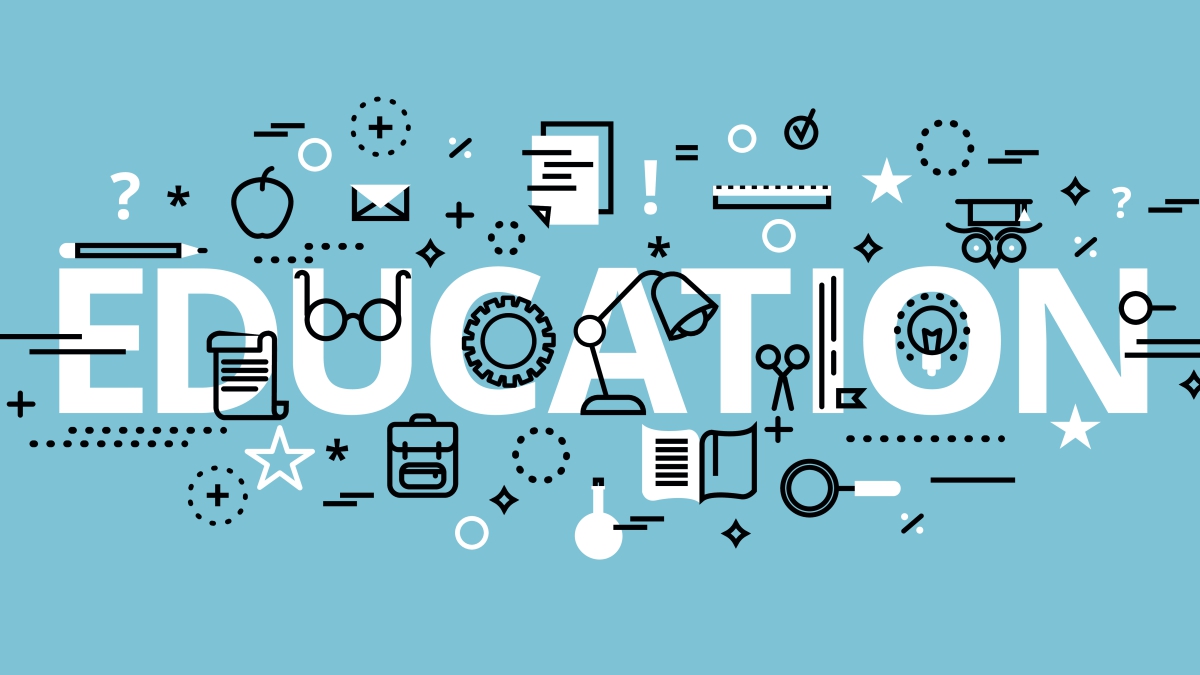
Nowadays, everyone is obsessed with education. It is on everyone’s lips. Education was perhaps one of the main catchphrases of the last hundred, or so, years. People increasingly talk about the knowledge revolution as a global-scale paradigm shift whereby knowledge and ideas are the main source of economic growth. The knowledge revolution is on a par only with the previous agricultural and industrial revolutions. Yet, it is set to overtake and eclipse them, both in importance and scope.
However, things are not always what they seem.
Education does not yield desired outcomes. People are still ignorant about the most fundamental life matters. They still do not know what life, in the first place, and its purpose, as well as objective, are. Nor do they know who they are, what they were meant to be, and whether they are in charge of their own destiny, or there is God, or any other supernatural power or intelligence, which designed, created and sustains life and the universe.
Defining and redefining such basic things as the marriage and family institutions, the role of woman, and the nature of the relationship between the opposite -- or same -- genders seem so pivotal and challenging that it often tops the lists of the most urgent and thorny global problems. People still gaze at the sky and its stars wondering what the life and death phenomena are, what will eventually happen to us – and everything else -- and whether or not we are alone in the universe.
Even the issues of human rights, freedom, and people’s cultural, social and biological differences are yet to be fully comprehended, much less translated globally into legislative language. Handsome international awards are given to those individuals and institutions as make the most outstanding contributions in the mentioned and other related fields. Certain individuals and their ideas are regarded as the rock solid icons for modern civilization.
However, those are the most critical themes upon which the ultimate destiny of mankind rests. Thus, knowing them signifies at once the most fundamental and most indispensable form of knowledge. It, in fact, is the only, ultimate and supreme knowledge. Every other form of knowledge is relative and conditional, irrespective of how fancy or bombastic names we may attach to them. They are to originate from the former, supplementing, facilitating and serving it. They are further to be fully subservient to it, deriving only therefrom their identity, purpose and aim.
In passing, for man to still ask those basic questions, finding neither adequate nor conclusive answers -- even after spending many thousands of years on earth -- is surely a sign of his tenacious ignorance and primitiveness, which are today nicely wrapped with a glossy and glittery wrap of modernity and progress, and are presented as such to the world.
For example, medicine, as a science of restoring and preserving health by diagnosing, treating and preventing diseases, is integral to the essence of life, significantly participating in ensuring people’s total wellbeing. Hence, life, as the utmost and omnipresent reality, and medicine, as a constructed and qualified reality as part of the former, are intertwined. The philosophy, vision and mission of medicine ought to be authentic and truthful, mirroring the profound meaning and purpose of life. Its code of ethics should be in full conformity with life’s intrinsic values and the exigencies of man’s primordial nature. The two should be in constant harmony, whence medicine can only derive its strength and integrity. When medicine, both as a philosophy and science, comes into conflict with the quintessence of life and man’s inborn disposition, it loses its credibility and way, proportionately to how much it veered from life’s natural right path.
This essentially applies to all natural, social and formal sciences. As systematic enterprises that encompass the study of the structure and behaviour of the physical and natural world, sciences are expected to generate, disseminate and apply genuine knowledge. If they fail to do so, they become bogged down with articulating and perpetuating actual ignorance as well as deceit, partly or completely. In the long run, humanity and human civilization can benefit genuinely very little from such enterprises.
As an evidence of this, the more advanced the scientific world, and the more sophisticated the technological achievements become, the more problems emerge and beset humankind, both in terms of their quantity and intensity. More problems are thus created than solved; so, it’s one step forward, two steps back. But then, what else could be expected from the driving force of human civilization -- i.e., the realms of science and technology -- that is anchored in flawed or outright wrong worldviews?
The Main Problems with the Scientific Knowledge
The main problems with the scientific knowledge that may directly or indirectly promote ignorance and falsehood are as follows.
First, much of its knowledge is transient, conditioned by the time-space factor. As such, it quickly needs upgrading and improving, evolving into something else, or simply becoming obsolete and useless. For example, if an engineer, doctor, scientist or an architect do not keep abreast for a long period of time with the latest advancements in their respective fields, the knowledge of each one of them will become seriously impaired. Yet, some may become illiterate. In view of that, if a person has no permanent knowledge about the permanent truths of existence and its multi-tiered physical and metaphysical realities, once retired, his knowledge and skills are set to dwindle. Such a condition will become even worse with the passage of time. One’s life then becomes a movement from the known, which keeps fading both in the distance and from the memory, to the unknown, which keeps getting ever more present and imposing, and so, foreboding.
And what a woe! At the end of his life journey, instead of becoming most knowledgeable and wisest, a person becomes least learned and least knowledgeable. No wonder that the elderly – and to some extant the middle-aged persons as well -- once they fully realize, and come to terms with, the fact that their time was nearing the end, suffer most from depression and loneliness. It is grief for the departed, and fear of the forthcoming. While everything in the matrix of life had to always make perfect sense and be part of a system that had to culminate in an impressive climax, the whole life phenomenon, all of a sudden, becomes senseless and anticlimactic.
This could be one of the reasons why the elderly population as it nears its end is increasingly less respected and loved. By many of their family members, neighbours and government institutions alike, they are progressively seen as a liability. In most extreme cases, they are even seen as life failures, from whom little help or guidance could be sought while tackling the biggest and most consequential life challenges. Following their life patterns inevitably spells corresponding failures. Trying something else, it stands to reason, always connotes a better option that will assure a measure of optimism. However, the life principles that what goes around comes around, and that two wrongs don’t make a right, are always at work, promising the younger generations a similar fate.
Second, man as the main protagonist in the scientific fields was not fashioned in the image of the normative transcendent principles and values that underpin his existence and the existence of sciences and their respective life fields. Rather, he was fashioned, or moulded, in the image of the descriptive and applied relative scientific values and norms, making him a quality professional and expert only, rather than a comprehensively good man – or a woman – ready to behave morally and act responsibly, and make contributions, in all milieus. As a result, humility, benevolence and altruism are the foremost attributes neither of the modern man, nor of his materialistic civilization driven and dominated by the materialistic West.
Third, the ways the scientific knowledge is generated and the goals for which it is generally applied, are consistent only with the hedonistic, nihilistic and agnostic preferences of the modern materialistic man. No – or extremely little – consideration is given to a higher spiritual and ethical order of things. Consequently, the scientific knowledge and its application, including the development of various technologies and their own applications, instead of solely benefitting and improving life, have the potential to become one of the greatest threats to humanity – despite a myriad of its short and medium-term benefits. It can become a weapon of mass destruction for the earth and all its inhabitants.
Many people’s consistent calls for the implementation of such conspicuous concepts as, for example, sustainable development, knowledge-based society, codes and policies for scientific research ethics, scientific social responsibility (SSR) on line with CSR (corporate social responsibility), green technologies, etc., should not be mistaken for global crusades to save – as well as serve -- the earth and humanity. Rather, the people in most cases make such enticing calls not because they are genuinely concerned about the fates of the planet earth and its present as well as future occupants, but because their irresponsible and uncontrollable devouring of the earth and its limited resources became endangered.
From the beginning, the case was never about the earth and the ethical behaviour of man towards it. Quite the reverse -- it was all about serving and sustaining human ego, greed and self-centredness. It was all about prolonging the prospect of man’s raping of nature (the earth) and its assets in the name of knowledge, civilization and progress. Man got so used to the routine that reducing, or stopping, it appears unfeasible. One wonders, therefore, how ethical the people’s present calls for sustainability, ethical scientific conduct, SSR, CSR, etc., in the final analysis are. They are certainly hailed as such, but in reality, they are merely acts of global civilizational hypocrisy, dishonesty and deceit.
This is all because knowledge is power. If it is used aright, it can do wonders both for individuals and societies. But if it is misused or abused, it can drag to the bottommost and destroy both individuals and societies. It is a double-edged boon for mankind.
Islam’s View
It is on account of this that Islam pays special attention to knowledge, so much so that Islam is regarded as a religion (way of life) of learning and knowledge. It upholds that man is created to know and fulfill his honourable vicegerency mission accordingly. Knowing means succeeding; not knowing implies failure and ruin. Knowledge is the source of all goodness, ignorance the source of all evil and sin.
Knowledge in Islam is synonymous with light and guidance. The net result of an educational system ought to be authentic knowledge, which, in turn, is expected to provide light and guidance to people. It follows that educated individuals are supposed to be enlightened and guided. They are to be pragmatic and at the same time empowered to tackle head-on all types of life challenges. As perennial beacons of guidance, motivation and hope, they are true assets to humanity.
Education is not to prepare a person for his professional life only, and to equip him with a few practical skills relating to his field of interest. Rather, education is to prepare a person for life, enabling him to succeed not only in his chosen specialization, but also in life as a whole. He is to be not only a competent, but also good and responsible, professional. Moreover, he is to be a good and responsible human being, which entails all the other life aspects and activities.
In this manner, a truly educated person receives knowledge as a sign (set of signs) that leads him towards the ultimate accomplishment of his existential purpose. Knowledge is thus called “‘ilm” in Arabic, which is from the same root word as “‘alam”, which means sign, indication or mark. Upon mastering knowledge, an educated person himself eventually becomes a sign, embodying virtually everything that both education and knowledge comprise. He is thus called “‘alim”, customarily translated as “scholar”. And the whole realm of educational and scientific ventures and enquiries: the world, is not by chance called “‘alam”, for it – positively -- with its physical and transcendent dimensions, is the foremost object of “ilm”, a powerful sign itself, and a locus of incalculable other signs.
Hence, Islamic education is often called “tarbiyyah”, which means development, increase, growth and upbringing. A person that subjects himself to such a holistic system is expected to continuously grow and develop intellectually, spiritually and morally, from the cradle to the grave. And the older he gets, the more knowledgeable and more erudite he becomes. Due to this, the elderly in Islam are accorded such a venerable status, enjoying an unprecedented degree of respect and honour. The goal of formal educational systems and institutions is to promote, foster and facilitate tarbiyyah.
Indeed, being true Muslim and practicing Islam as a way of life signifies a journey towards self-actualization. People are to always look up, as well as ahead, and be abiding optimists. Hence, Almighty Allah keeps encouraging His true servants that there will be no fear coming on them (la khawfun ‘alayhim) with regard to what is forthcoming, nor will they grieve (wa la hum yahzanun) with regard to what they leave behind. The ultimate destination of such a journey will be Paradise (jannah) as the definitive climax of a process that started with the first thing a person learned about himself, life and Islam. True believers will succeed in both worlds because they knew and performed. Those who fail will do so only because they neither knew nor performed, regardless of the level of their superficial one-dimensional education.
Finally, it is perhaps owing to this – and Almighty Allah knows best -- that the opening word in the Qur’anic surah (chapter) ‘Alaq is “read” and the closing ones “prostrate yourself and draw near (unto Allah)”. That could mean that a person’s life should commence and unfold with, and in the spirit of, the notions of reading, learning and knowing, which inevitably lead to the realization of man’s terrestrial purpose. That purpose has been identified with man’s full submission and drawing near to Allah, the Creator and Master. It surely was no coincidence, furthermore, that the first word revealed, or communicated, to the Prophet (pbuh) was also “read”, from the first verse (ayah) of the surah ‘Alaq.








